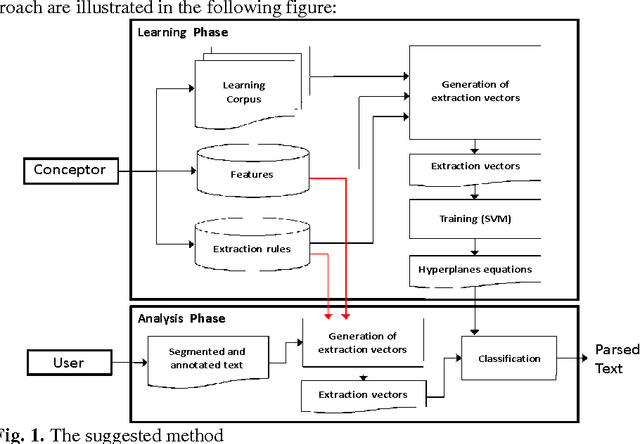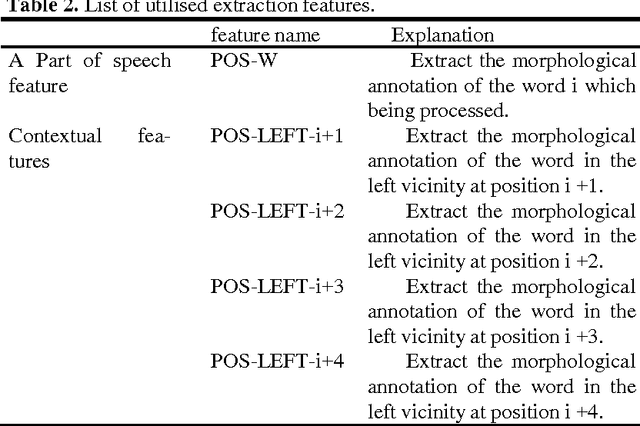Lamia Hadrich Belguith
Supervised learning model for parsing Arabic language
Oct 31, 2014

Abstract:Parsing the Arabic language is a difficult task given the specificities of this language and given the scarcity of digital resources (grammars and annotated corpora). In this paper, we suggest a method for Arabic parsing based on supervised machine learning. We used the SVMs algorithm to select the syntactic labels of the sentence. Furthermore, we evaluated our parser following the cross validation method by using the Penn Arabic Treebank. The obtained results are very encouraging.
Building Ontologies to Understand Spoken Tunisian Dialect
Sep 03, 2011


Abstract:This paper presents a method to understand spoken Tunisian dialect based on lexical semantic. This method takes into account the specificity of the Tunisian dialect which has no linguistic processing tools. This method is ontology-based which allows exploiting the ontological concepts for semantic annotation and ontological relations for speech interpretation. This combination increases the rate of comprehension and limits the dependence on linguistic resources. This paper also details the process of building the ontology used for annotation and interpretation of Tunisian dialect in the context of speech understanding in dialogue systems for restricted domain.
* 10 pages, 3 figures
 Add to Chrome
Add to Chrome Add to Firefox
Add to Firefox Add to Edge
Add to Edge